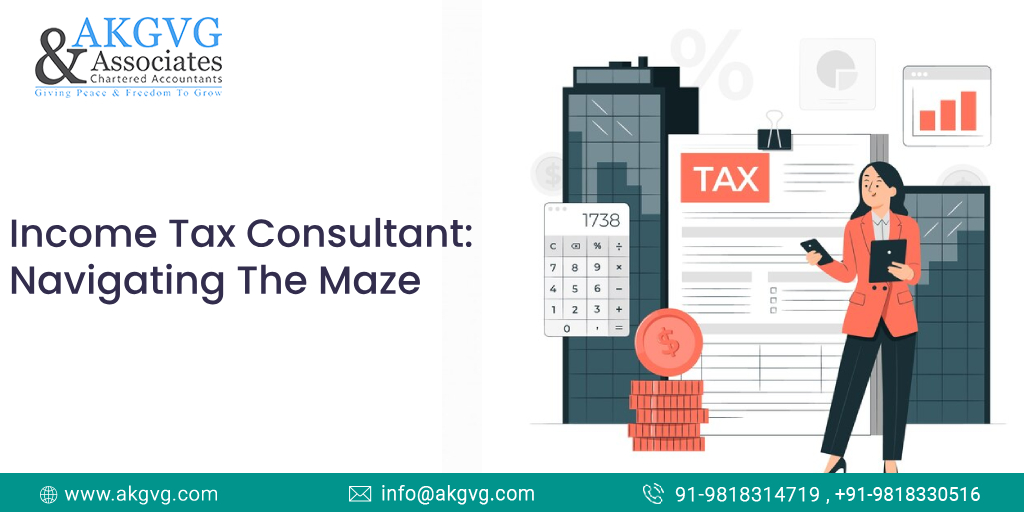
In the bustling economic landscape of India’s capital, managing taxes can be a complex affair. An income tax consultant plays a pivotal role in unraveling the intricacies of tariff laws, ensuring both compliance and optimization of financial resources. This blog will help you to navigate through the complexities of income tax, ensuring you stay compliant and successful in your business endeavours.
The integral role of an income tax consultant
An income tax consultant is more than a mere tariff preparer they are advisors and strategists. Their expertise encompasses understanding evolving tax laws and applying them effectively to benefit their clients. This role is crucial in crafting a monetary plan that aligns with tariff efficiency, offering guidance on everything from tariff filing to long-term financial planning. The core responsibilities include:
- Staying updated with the latest duty laws and regulations.
- Providing personalized tariff planning and compliance advice.
- Representing clients in discussions with tax authorities.
Selecting the ideal consultant
Choosing the right income tax consultant requires careful consideration of their qualifications and experience. An adviser with a diverse portfolio offers insights gained from various scenarios, which can be invaluable. Equally important is their ability to communicate complex tariff matters in a straightforward, understandable way. These are some of the important points to consider:
- Professional certifications and academic background.
- Experience in dealing with similar tariff situations as yours.
- Clarity and effectiveness in communication.
Advanced tax planning techniques
It involves strategic approaches that extend beyond basic compliance. It’s about proactively managing tariff obligations to maximize financial efficiency. An experienced income tax consultant can introduce you to various techniques that can significantly reduce your tariff liability while adhering to legal norms. Effective tariff planning strategies include:
- Utilising income splitting methods among family members to lower overall tariff burdens.
- Investing in tariff-efficient instruments to optimize financial returns.
- Leveraging tariff credits and deductions to minimize taxable income.
Ethical considerations and transparency
Integrity and transparency are key when dealing with financial matters, especially taxes. A trustworthy income tax consultant adheres to ethical practices, ensuring that all advice and strategies are within the legal framework. This not only protects you from potential legal issues but also maintains the sanctity of your financial dealings. Maintaining ethical standards, such as:
- Adherence to legal guidelines and ethical practices.
- Transparent and honest communication with clients.
- Prioritizing client’s financial security and compliance.
Staying updated and informed
The field of taxation is ever-evolving, with frequent changes in laws and regulations. A competent income tax consultant commits to continuous learning and stays updated with the latest developments. This is crucial in providing clients with the most current and effective tax advice. Keeping up with changes, like:
- Regularly updating knowledge of tax laws and practices.
- Attending seminars and workshops for professional development.
- Subscribing to tax law updates and journals.
Conclusion
Hiring an income tax consultant is an investment in your financial well-being. The right adviser does more than file taxes as they provide valuable insights, strategic planning, and peace of mind. In the complex world of tariff laws and financial planning, having a knowledgeable and trustworthy consultant can be the key to achieving both compliance and financial optimization. Remember, effective tax management is a crucial component of overall financial health and should be approached with diligence and expertise.
This content is meant for information only and should not be considered as an advice or legal opinion, or otherwise. AKGVG & Associates does not intend to advertise its services through this.
